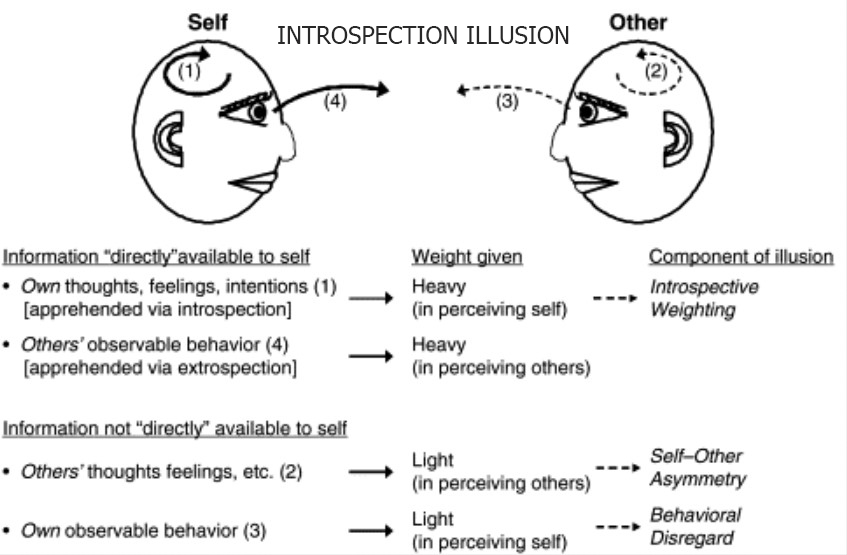The introspection illusion is a cognitive bias that occurs when individuals believe that they have insight into the origins of their thoughts, feelings, and behaviors, when, in reality, they often lack accurate awareness of the underlying reasons for their actions. People tend to create explanations for their behavior, which may not accurately reflect their true motivations.
Explanations:
The introspection illusion is related to our limited self-awareness and the complexities of human psychology. People often construct narratives to make sense of their behavior, even if these narratives do not accurately reflect the subconscious or external influences that drove their actions.
Examples:
Relationships: A person might believe they are attracted to someone for their personality, when subconscious factors like physical appearance play a more significant role.
Shopping: Shoppers may provide reasons for purchasing a product that are different from their actual motivations, which could be related to emotional needs or external influences.
Career Choices: Individuals might rationalize their career choices with factors like passion and fulfillment, while external pressures or financial concerns may have played a larger role.
Solutions:
Mindfulness: Develop mindfulness and self-awareness to recognize when you may be engaging in introspection illusions.
External Feedback: Seek feedback from others to gain different perspectives on your motivations and behavior.
Therapeutic Support: Consider therapy or counseling to explore your motivations and better understand your thoughts and actions.
Journaling: Keeping a journal or diary can help you gain insights into your own behavior over time.
Addressing the introspection illusion involves recognizing that your explanations for your behavior may not always align with your true motivations. By promoting mindfulness, seeking external feedback, and potentially seeking therapeutic support, you can gain a more accurate understanding of your actions and decisions.
